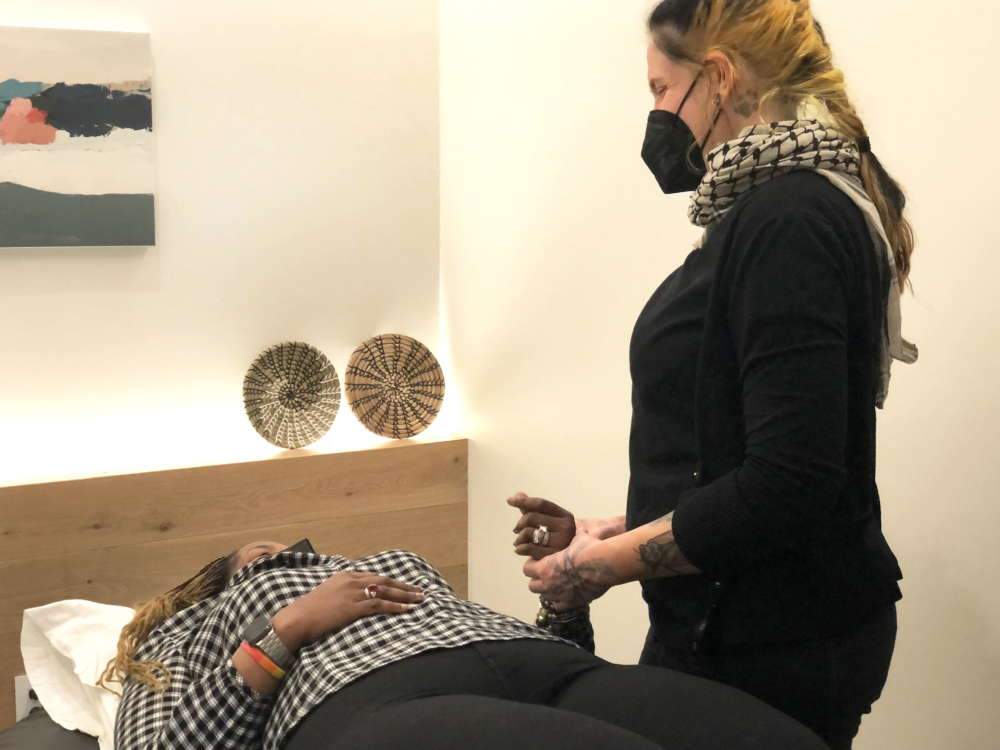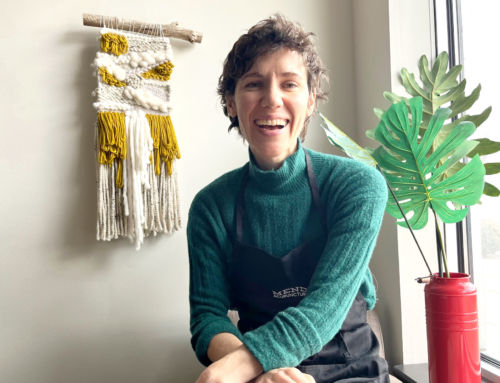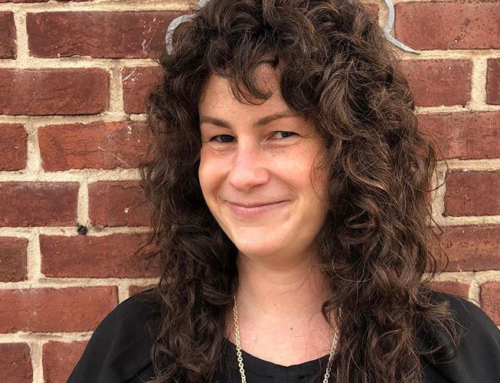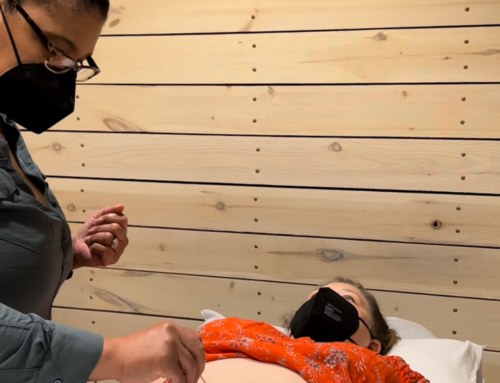At Mend, we love our acupuncturists and their diverse backgrounds and interests. This is why we sat down with Aurora Raiten, who joined the team in 2020, to learn about why she became an acupuncturist, what she enjoys treating, and other tidbits.
What were you doing before becoming an Acupuncturist? What led you to this work?
In my very early 20s, I started noticing what at the time felt like bizarre and disjointed symptoms throughout my body – memory loss, severe headaches, endocrine system disruption – and spent several years putting myself through the ringer trying to figure out what was wrong. I received acupuncture as a kid and remembered being amazed by how quickly and thoroughly it worked for me at the time, so, like many of my patients now, I reached out to an acupuncturist as a last ditch effort to get some relief and was once again amazed by what happened. I was working as a massage therapist and full-spectrum doula at the time so I had some awareness of the body but I was so intrigued and moved by the experience, that I decided to dive in further and went to acupuncture school. It was through this work that I finally received and began treatment for the correct diagnosis of Lyme disease; the study of acupuncture and East Asian medicine at-large has expanded my consciousness in more ways than I am able to express here, both on a practical, tangible, and more esoteric level.
How would you describe your approach? How would patients describe a session with you?
I deeply resonate with the functional medicine approach to health and find that after over 12 years in practice, my work in general tends to be focused through that lens. My style of acupuncture is very much a hybridized mirror of my mentors, combining Japanese acupuncture in the tradition of Kiiko Matsumoto with TCM and a bit of trigger point therapy as defined by Dr. Mark Seem’s “acupuncture physical medicine.” I am also very influenced by the trauma care work of Peter Levine and often use somatic experiencing techniques, both in helping my patients come to a place of grounded awareness and peace in the treatment room, and in working directly with survivors.
What conditions do you feel most successful with or drawn to treat?
I am very drawn to working on complex chronic illnesses such as Lyme disease, being one of the major catalysts for my initial interest in acupuncture, headaches, as well as the digestive system and associated dysfunction are both especially fascinating to me. I also always appreciate the opportunity to work with folks on their journey toward gender affirmation and wholeness.
What’s happening in your life outside the treatment room? What’s joyful?
I’ve got delusions of inner city homesteading grandeur! My partner and I adopted a few chickens at the beginning of the pandemic and they are a constant joy to spend time with. We’re starting to work on plans for our spring garden now, which helps me get through the winter – I am absolutely a full-sun plant, give me 80+ degree humid weather over the cold any time! Writing and playing music is also a tremendous respite for me; I’ve had to give up my other love of Muay Thai training during the pandemic, but I’ve discovered a new passion for weight lifting which is unendingly interesting (if not equally frustrating).
What’s something you’re reading now?
Over the past couple of years I’ve gotten really into reading memoirs of musicians, artists, and activists that I admire: Genesis Breyer P-Orridge (“Non-Binary”), Alice Bag (“Violence Girl”), David J (“Who Killed Mister Moonlight”), Kate Bornstein (“A Queer and Pleasant Danger”), Assata Shakur (“Assata: An Autobiography”), Dr. Willie Parker (“Life’s Work: A Moral Argument for Choice”). I’ve also been reading a lot about straw bale gardening, which is such an incredible system particularly within industrialized areas where the soil quality is poor…don’t get me started.
What’s your fav work snack??
Literally everything I’ve tried at Sweet 27 in Remington is amazing (and gluten free!)
Anything else you want to add?
If I have any one goal with this work, it is to expand access to natural medicine. It is my intention to hold space where folks whose bodies and experiences are deprioritized, politicized, and criminalized feel safe seeking and receiving care.
Toward Gender Inclusivity: The Queerness of Yin and Yang
Kiiko Matsumoto
Aurora Raiten, L.Ac. Acupuncturist
Aurora (she/they) graduated in 2010 with a Masters degree from Tri-State College of Acupuncture and synthesizes several traditions of East Asian medicine in her practice, drawing heavily from the Japanese style of one of her college mentors, Kiiko Matsumoto. Aurora is especially interested in treating the varied presentations of chronic illness such as Lyme disease, particularly focusing on neurological, gastrointestinal, and pain complaints. With a long history of training and competing in Muay Thai, Aurora always appreciates the opportunity to work with athletes of all levels. Having worked as a full-spectrum doula for many years, Aurora also loves treating endocrine system/hormonal health in people of all genders, and has found acupuncture to be extremely helpful in supporting the gender affirmation process. It is Aurora’s intention to hold a radically inclusive, individually empowering space for all bodies to receive care. Hiking, wildcrafting, and mushroom hunting are a few favorite pastimes when not in the clinic, as well as very loudly playing bass guitar in their band. After spending a few years away, Aurora is happy to be back in Baltimore with their amazing partner, two ridiculous cats, and a burgeoning flock of chickens.






